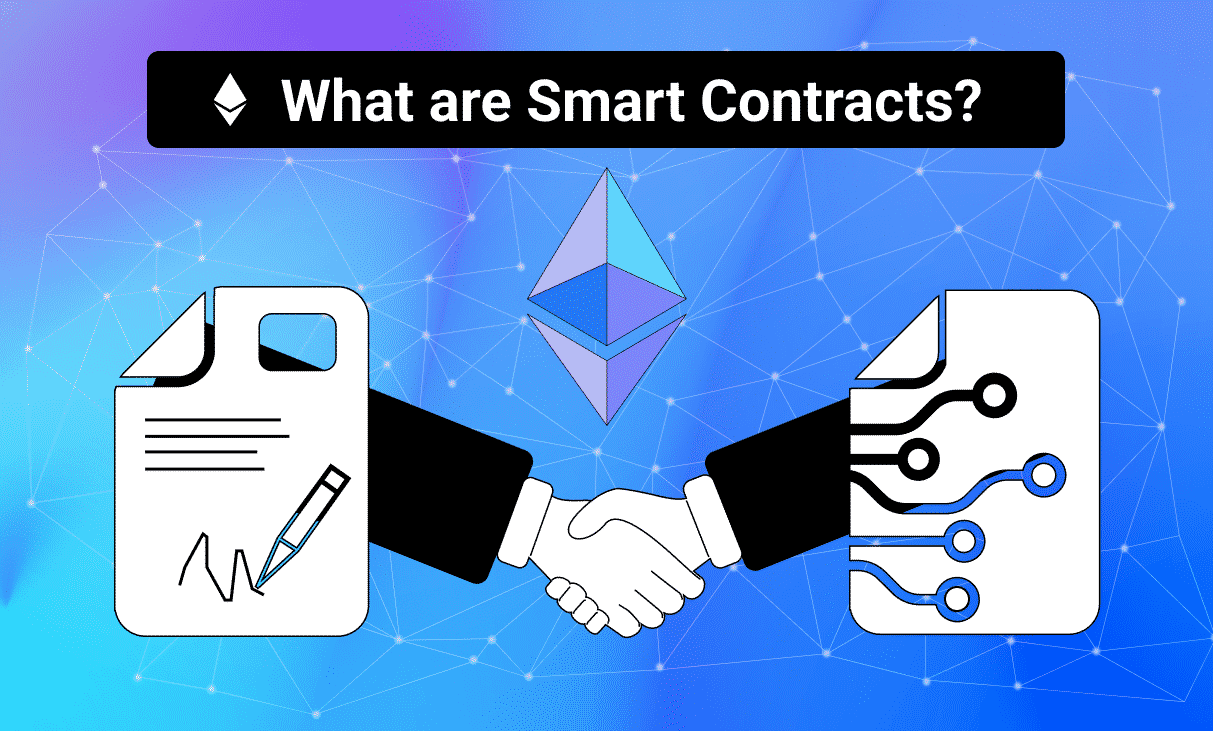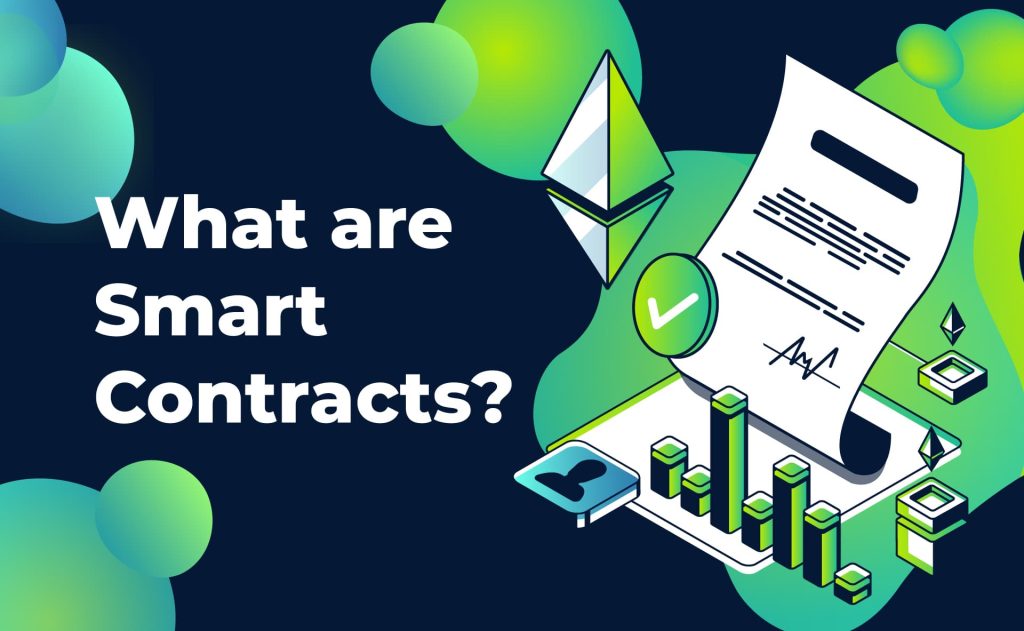
James Carter
What is Smart Contracts?: Revolutionizing Business with Transparent Automation

Smart contracts have emerged as a transformative technology, revolutionizing the way business transactions are conducted in the digital age. Leveraging blockchain technology, smart contracts enable the automation and self-execution of agreements without the need for intermediaries, offering increased efficiency, transparency, and security. In this article, we will delve deep into the world of smart contracts, exploring their key concepts, working mechanisms, use cases, and the challenges and future prospects they present.
Key Concepts of Smart Contracts
Automation and Self-Execution:
Smart contracts also are digital agreements that automatically execute predefined conditions and actions once triggered. By utilizing programming languages like Solidity and Vyper, these contracts eliminate the need for intermediaries and facilitate the seamless execution of transactions.
Distributed Ledger Technology (DLT):
Smart contracts are built on distributed ledgers, such as blockchain. These ledgers serve as decentralized and tamper-proof record-keeping systems, ensuring transparency, immutability, and trust in the execution of smart contracts.

Decentralization and Trustlessness:
Additionally One of the fundamental features of smart contracts is their decentralization. They operate on a network of computers, removing the need for a central authority. This decentralized nature eliminates single points of failure and reduces the risk of fraud or manipulation.
Immutable and Transparent Record Keeping:
Smart contracts record all transactions on the blockchain, creating an immutable and transparent ledger of activities. This feature enhances accountability and allows for auditing and verification of contract execution.
How Smart Contracts Work
Code Execution:
Smart contracts are written in specific programming languages, primarily Solidity for Ethereum. Once written, the code undergoes compilation and is deployed onto the blockchain. However, executing smart contracts on blockchain networks incurs gas fees, which are used to incentivize miners or validators to process and confirm the transactions.
Interaction with Blockchain:
Smart contracts interact with the blockchain by submitting transactions and utilizing consensus mechanisms to validate and confirm them. Miners or validators play a crucial role in maintaining the integrity of the blockchain network, ensuring that smart contract transactions are executed accurately.
Triggering Conditions and Events:
Smart contracts execute based on predefined triggering conditions. These conditions can be internal, such as a specific date or time, or external, relying on data obtained from oracles. Oracles act as bridges between the blockchain and external data sources, providing real-world information necessary for smart contract execution.
Security and Vulnerabilities:
While smart contracts offer enhanced security through decentralized and transparent execution, they are not immune to vulnerabilities. Common risks include reentrancy attacks and front-running. To mitigate these risks, developers follow best practices for secure smart contract development and conduct audits to identify and rectify potential vulnerabilities. Furthermore, the immutability of smart contract presents challenges when upgrades or modifications are required.
Use Cases of Smart Contracts
Financial Applications:
Smart contracts have had a significant impact on decentralized finance (DeFi), revolutionizing lending, borrowing, and trading. They enable the creation of automated lending platforms, decentralized exchanges, and yield farming protocols. Additionally, tokenization and asset management benefit from smart contract, allowing fractional ownership and simplified transfer of assets.
Supply Chain Management:
Smart contracts are transforming supply chain management by providing end-to-end transparency and traceability. By recording every transaction on the blockchain, stakeholders can track and verify the movement of goods, ensuring the authenticity and provenance of products. Smart contract-based payment systems also streamline transactions, reducing delays and eliminating the need for intermediaries.
Governance and Voting Systems:
Smart contracts are revolutionizing governance and voting systems by providing transparent and tamper-proof elections. Through the use of blockchain and smart contract, organizations can create decentralized autonomous organizations (DAOs) where voting rights are allocated based on governance tokens.These tokens represent the stakeholders’ influence in decision-making processes, ensuring transparency and reducing the risk of fraud or manipulation.
Intellectual Property and Royalties:
Smart contracts offer a robust solution for managing intellectual property rights and ensuring fair distribution of royalties. By recording ownership records on the blockchain, smart contract establish immutable proof of ownership. Additionally, they enable automatic royalty distributions based on predefined conditions, eliminating the need for intermediaries and reducing disputes over payments.
WATCH THE VIDEO BELOW
Challenges and Future Perspectives
Scalability and Network Congestion:
As smart contract adoption continues to grow, scalability remains a significant challenge. Blockchain networks, such as Ethereum, have faced congestion issues and high transaction fees during peak usage times. Scaling solutions like layer 2 protocols and sharding aim to address these challenges and improve the efficiency of smart contract execution.
Interoperability between Different Blockchain Platforms:
Currently, smart contract are primarily built on specific blockchain platforms, limiting interoperability. However, efforts are underway to establish cross-chain interoperability standards, enabling seamless interaction between different blockchain networks. This would unlock new possibilities for smart contract utilization across various platforms and enhance their overall value.
Legal and Regulatory Considerations:
The rapid growth of smart contract has prompted legal and regulatory discussions. The legal enforceability of smart contract varies across jurisdictions, and regulatory frameworks are still evolving. Addressing these considerations is crucial to ensure the widespread adoption and acceptance of smart contract in traditional legal systems.
Potential for Smart Contract Standardization:
As the adoption of smart contract expands, the development of standardized frameworks and best practices becomes imperative. Establishing industry-wide standards for smart contract development, security, and auditing would foster interoperability, enhance security, and facilitate the mainstream adoption of smart contract.
Summary
Smart contract have emerged as a game-changing technology, reshaping the way businesses and transactions are conducted. By leveraging automation, transparency, and decentralization, smart contract offer significant benefits across various industries, from finance to supply chain management and governance. However, challenges such as scalability, interoperability, and legal considerations need to be addressed to unlock the full potential of smart contract.
As the technology continues to evolve, smart contract hold promise for streamlining processes, reducing costs, and increasing trust in business transactions. With ongoing research and development, the future of smart contract looks promising, heralding a new era of efficiency, transparency, and security in the digital economy. Embracing and understanding the power of smart contract is essential for businesses and individuals seeking to stay at the forefront of technological advancements and drive innovation in the digital age.
Latest
Technology
09 May 2024
Technology
19 Apr 2024
Technology
16 Jan 2024
Technology
31 Aug 2023
Technology
24 Jun 2023
Technology
24 Jun 2023













